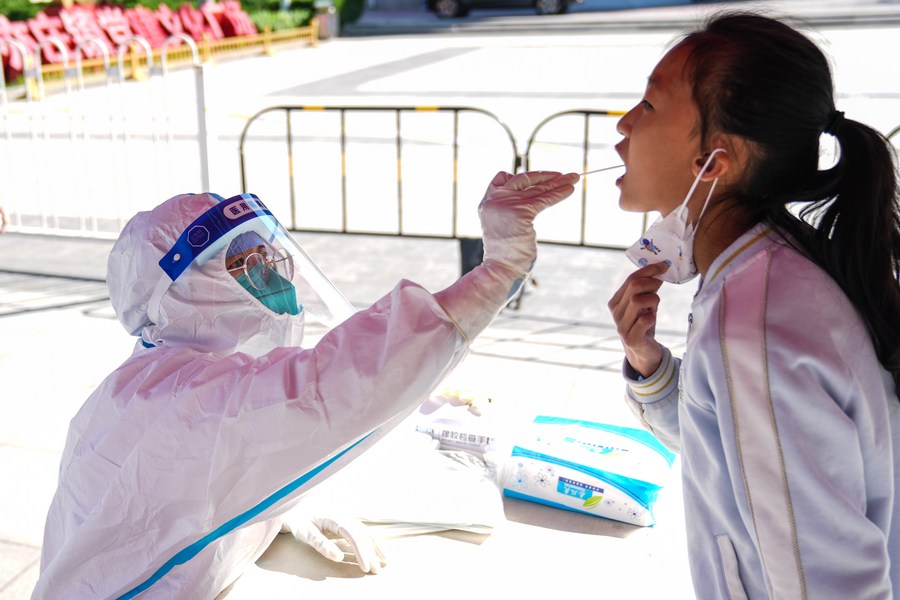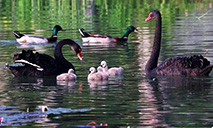Beijing ups restrictions to contain latest COVID-19 flare-ups

A medical worker takes a swab sample from a resident for nucleic acid testing in Daxing District, Beijing, capital of China, April 30, 2022. (Xinhua/Peng Ziyang)
BEIJING, April 30 (Xinhua) -- The Chinese capital city of Beijing intensified restrictive measures against COVID-19 on Saturday to best reduce cross-infection as high mobility is expected during the five-day Labor Day holiday starting from Saturday.
Beijing reported 59 new locally transmitted confirmed COVID-19 cases and eight asymptomatic cases between 3 p.m. Friday and 3 p.m. Saturday. A total of 295 local infections in 13 districts have been logged in the city since April 22.
Beijing now has six high-risk areas and 23 medium-risk areas for COVID-19.
According to Ding Jianhua with the Beijing Municipal Commerce Bureau, many cases in the lastest upsurge in Beijing were infected at restaurants. Thus, to reduce the risk of cross-infection, restaurants in Beijing will suspend eat-in and switch to delivery services from May 1 to 4.
Beijing is also preparing to construct makeshift hospitals for a rainy day.
So far, about 4,000 beds have been reserved for COVID-19 infections in Beijing, and more venues are being transformed into large-scale makeshift hospitals in case of need, Li Ang, deputy director of the Beijing Municipal Health Commission, told a press conference on Saturday.
"The makeshift hospitals are built to treat mild cases and asymptomatic carriers, which is an effective means to block the spread of the epidemic. It's also vital to reduce overuse of medical resources and ensure that citizens get medical treatment in time," said Li.
Li added that residents need not panic as there are currently "not so many patients in Beijing, but we should plan ahead."
A negative nucleic acid test result is required to enter public venues during the Labor Day holiday.
Parks, open venues for entertainment and cultural activities will cap the number of visitors at half of the maximum flow during the holiday.
The city government also requires people who enter public places or take public transport to hold a negative nucleic acid test within seven days starting from May 5. Nucleic acid testing will be made available to citizens free of charge from May 3 to facilitate the public.
Photos
Related Stories
- Top epidemiologist rebuts claim dynamic "zero-COVID" approach harms economic growth
- Malaysian doctor aids epidemic fight in Shanghai
- Rising cases leave U.S. unsure of preventing next COVID-19 wave: report
- Over 37,000 child COVID-19 cases reported in U.S. past week
- Millions of COVID-19 shots in U.S. set to go wasted as vaccine rollout slows down
- Beijing takes measures to ensure supply of daily necessities
- COVID-19 pandemic not over yet: WHO
- Beijing reports 16 confirmed COVID-19, five asymptomatic cases
- Feature: Foreign students volunteer to aid anti-epidemic efforts on Shanghai campuses
- Bank employees remain at posts amid resurgence of COVID-19 in Shanghai
Copyright © 2022 People's Daily Online. All Rights Reserved.










